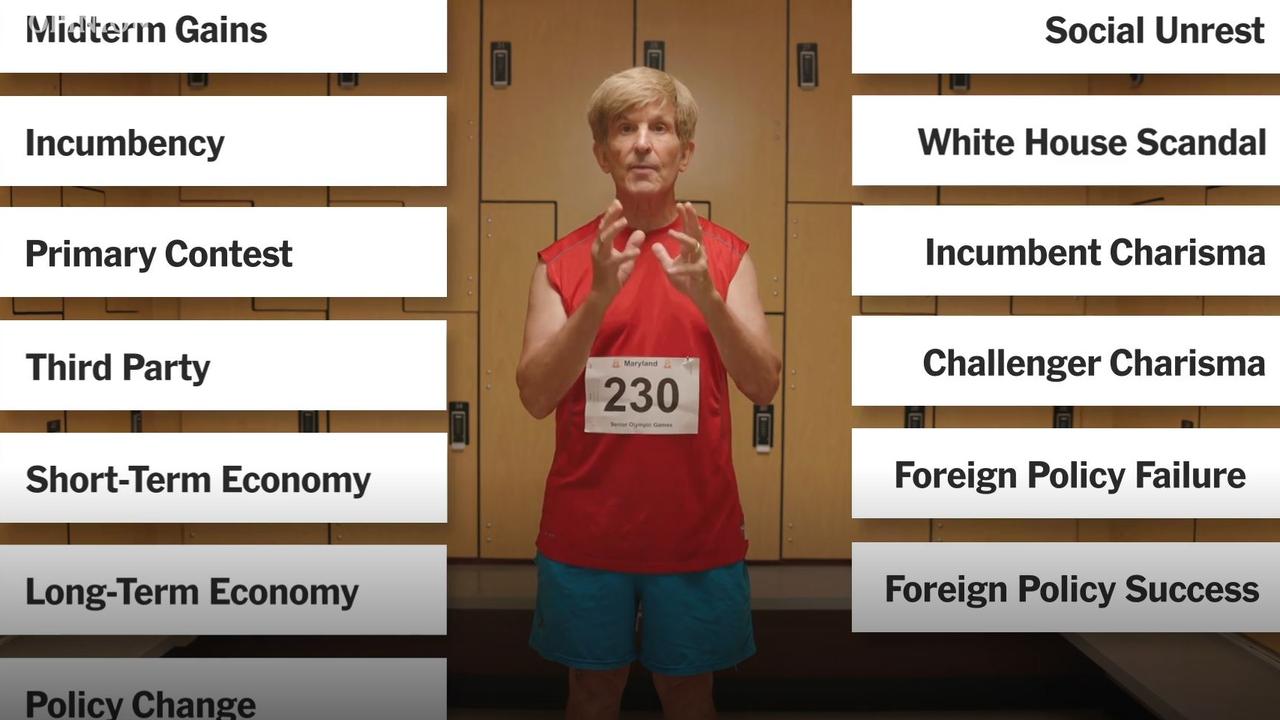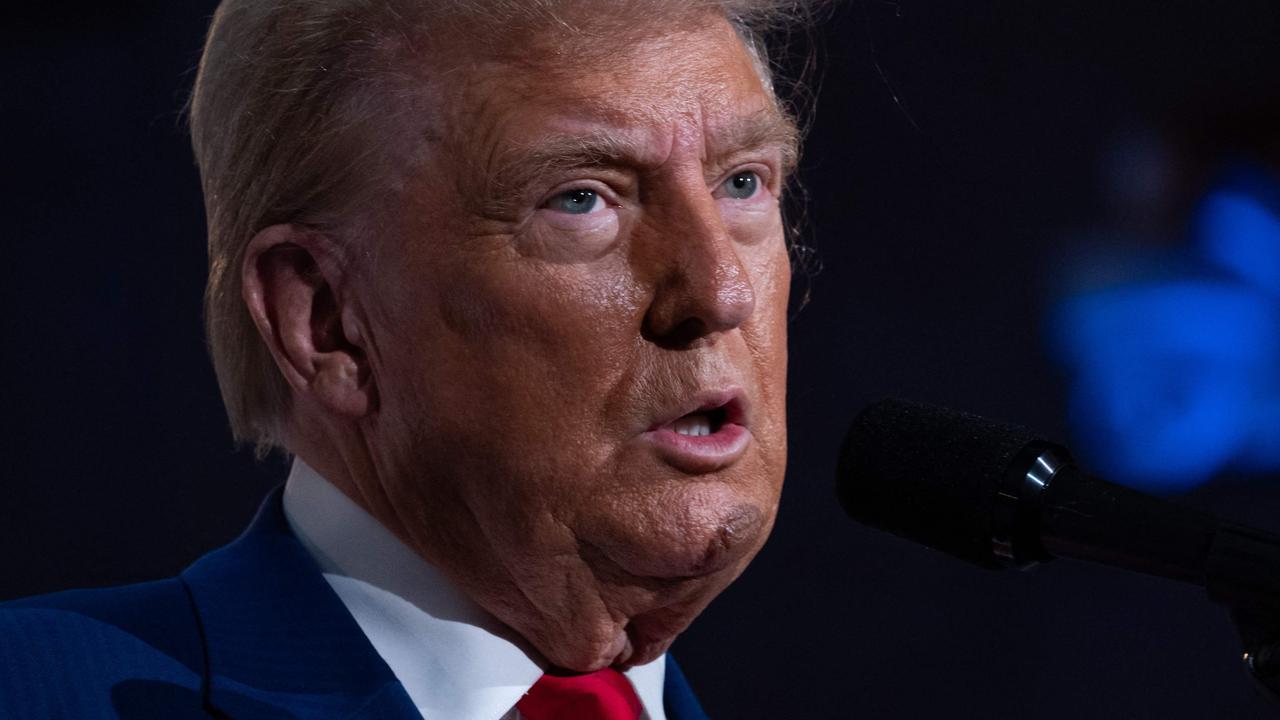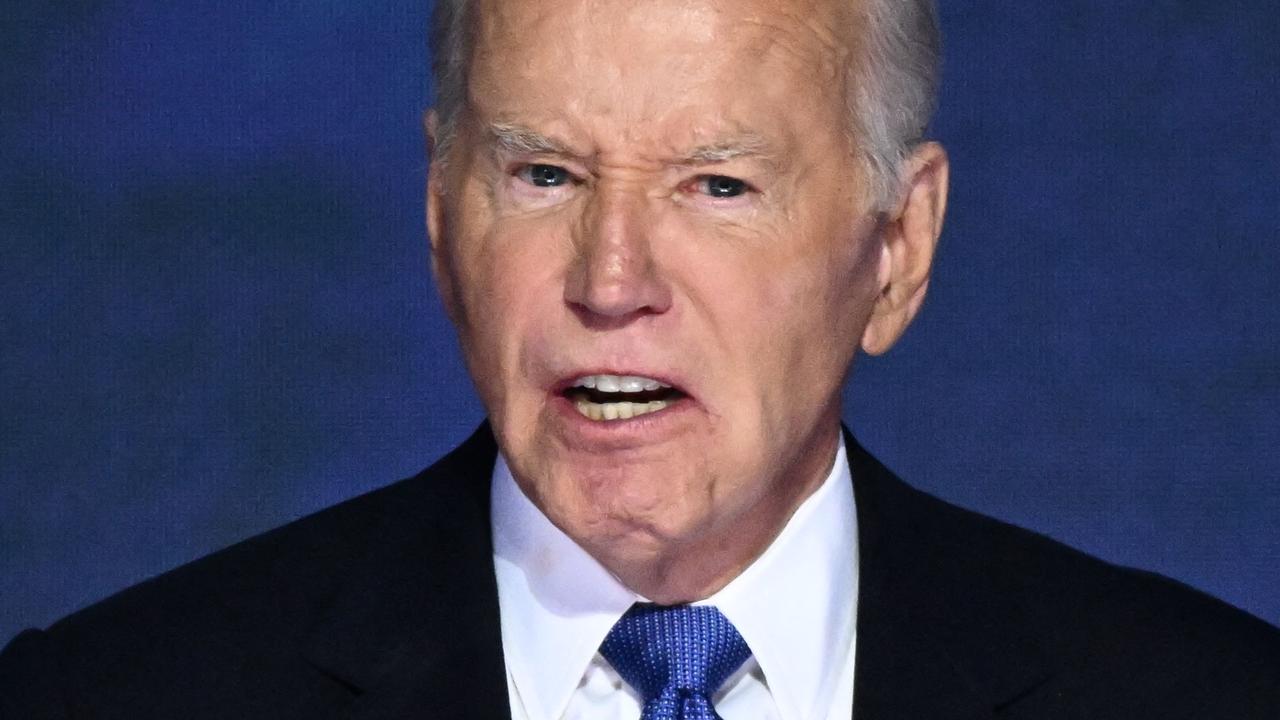Historian Allan Lichtman predicts who will win US election
A historian with a near-perfect record of predicting American presidential elections has revealed who he believes will win this time.
The American historian Allan Lichtman, known for developing a model that forecasts the winner of presidential elections, has revealed his prediction for November’s contest between Democrat Kamala Harris and Republican Donald Trump.
Mr Lichtman, who calls his model “The Keys to the White House”, claims to have correctly forecast the winner of all but one election since 1984. The odd one out was George W. Bush’s razor-thin victory over Al Gore in 2000.
We can also plonk an asterisk next to the result in 2016. While Mr Lichtman correctly picked Mr Trump to defeat Hillary Clinton, at the time he was saying his model predicted the winner of the popular vote, not the outcome in the electoral college. Mr Trump became president even though he received about three million fewer votes than Ms Clinton.
So look, it’s a predictive model, and whether through genuine insight or lucky coincidence, it’s usually been right in the past. Take it with some generous lumps of salt.
This time, Mr Lichtman says, Ms Harris should win.

The model involves a list of 13 factors – those titular “keys” – which Mr Lichtman believes add up to determine the outcome of an election. It ignores polling, and considers the events of the election campaign to be essentially irrelevant.
Hence Mr Lichtman’s previous prediction, before President Joe Biden withdrew from the race, that he would have won re-election, despite his abysmal polling and disastrous performance in June’s televised debate against Mr Trump. The model doesn’t take those things into account.
Mr Lichtman’s view is that voters tend to choose the president based on how well, or poorly, the country has been governed during the preceding term. If they’re broadly satisfied with the incumbent, the party in power will hold the White House.
Each key is a true-or-false proposition. If five or fewer are false, the incumbent party is predicted to win; six is the threshold at which the challenger will win.
Why the model favours Kamala Harris
Mr Lichtman revealed his updated prediction for the 2024 contest in, it must be said, a rather eccentric video published by The New York Times.
It shows the 77-year-old historian at an athletics track, and notes that he’s competing to qualify for the Senior Olympics.
“There’s another type of race Alan is just as qualified for,” a woman’s voiceover quips.
Righto. He eventually runs through each of the 13 keys, one-by-one. (Get it? Runs through? Call me with that lucrative job offer whenever, New York Times.)

Remember, these keys are all true-or-false propositions. True is good for Ms Harris; false is good for Mr Trump.
1. “After the midterm elections, the incumbent party holds more seats in the US House of Representatives than after the previous midterm elections.”
Advantage: Trump
“The Democrats did better than expected in 2022, but they still lost House seats, so the key is false,” Mr Lichtman said.
Pretty straightforward. The Democrats held 235 House seats after the 2018 midterms, which fell to 222 in the 2020 election, and then 213 in 2022.
The Republicans were expecting much better results in those most recent midterms; predictions of a comprehensive “red wave” were swirling for months ahead of time.
Instead they barely scraped to a majority in the House, and actually managed to go backwards in the Senate, with a succession of Mr Trump’s hand-picked candidates blowing races that were considered eminently winnable.
But none of that matters for the model. The Democrats have fewer seats than before, so this key favours Mr Trump.
2. “The incumbent party candidate is the sitting president.”
Advantage: Trump
This one favoured the Democrats before Mr Biden pulled out of the race. Ms Harris’s status as the current Vice President doesn’t count as incumbency in the model.
“If Biden stayed in they would have salvaged this one key. That’s all,” said Mr Lichtman.
Again, it’s worth noting that, before Mr Biden withdrew, the historian argued it would be a mistake to change the candidate. Few experts would agree with that now.
3. “There is no serious contest for the incumbent party nomination.”
Advantage: Harris
Mr Lichtman said the Democrats “got smart” by uniting “overwhelmingly” behind Ms Harris after the President’s withdrawal.
So, while there were months of anxiety within the party over Mr Biden’s age, and a less-than-subtle push in the end to force him aside, that doesn’t count as a contest.
If other Democrats had declared themselves candidates and competed with Ms Harris for the nomination, this key might have gone the other way. But she was, ultimately, unopposed.

4. “There is no significant third party or independent campaign.”
Advantage: Harris
The model considers an independent candidate “significant” if they reach 10 per cent in public polling (one of the few times it uses polling as a factor at all).
The likeliest person to meet that threshold, Robert F. Kennedy Jr, recently dropped out and endorsed Mr Trump. The other third-party candidates, such as the Green, Jill Stein, are only drawing 1 per cent, tops.
It’s unclear what effect, exactly, Mr Kennedy’s endorsement of the Republican candidate will have on the election. In any case, the model doesn’t care.
5. “The economy is not in recession during the election campaign.”
Advantage: Harris
This is the key called “short-term economy”.
Whatever else one might say about the American economy at the moment, GDP growth has remained fairly strong since the Covid-induced nosedive of 2020.
6. “Real per capita economic growth during the term equals or exceeds mean growth during the previous two terms.”
Advantage: Harris
And here we have the key called “long-term economy”.
“Growth during the Biden term is far ahead of growth during the previous two terms, so this key is clearly true,” said Mr Lichtman.
I’m sure Mr Trump would quibble with that characterisation of the economy, but he ain’t the one running the model.

7. “The incumbent administration effects major changes in national policy.”
Advantage: Harris
This measure, it seems, is premised on voters punishing do-nothing presidents.
Mr Lichtman identified a major infrastructure law, the Inflation Reduction Act and Mr Biden’s decision to rejoin the Paris Climate Accords as examples of major policy changes.
The vice presidency is a famously inert job, and voters have frequently said they’re unsure what, exactly, Ms Harris has done during her time in the White House. She could point to a fair bit of diplomacy. But just keep that in mind as a possible wrinkle.
8. “There is no sustained social unrest during the term.”
Advantage: Harris
The protests that followed George Floyd’s murder at the hands of a police officer in 2020 counted against Mr Trump, in this category, when he was running for re-election.
Mr Lichtman’s view is that nothing on that scale has happened during this term.
“There have been sporadic protests, but nothing approaching the massive, sustained social unrest needed to turn this key,” he said.
Mr Lichtman warned that the “key could still flip” if protests among those upset by the administration’s support for Israel were to foment further.
Any such protests are more likely to target Mr Biden than Ms Harris, though.
9. “The incumbent administration is untainted by major scandal.”
Advantage: Harris
“Republicans have been trying for years to pin a scandal on President Biden, and have come up empty,” Mr Lichtman said.
“There has to be at least some bipartisan recognition of actual corruption that implicates the President himself.”
Some conservatives would point to Mr Biden’s son, Hunter, who just pleaded guilty to nine tax-related charges. But Hunter’s business dealings, for years a subject of constant inquiry for Republicans, have never really managed to taint his father among mainstream voters.
Plus, Mr Biden isn’t even the candidate anymore. So there’s that.

10. “The incumbent party candidate is charismatic or a national hero.”
Advantage: Trump
Mr Lichtman stressed that the “threshold” for this charisma measure is “very high”, and requires a candidate to be a “once in a generation” talent.
“Harris has not met that standard,” he said.
This key would have been true for, say, the Republican president Dwight Eisenhower, who was a war hero before he entered politics, or for Democrat Barack Obama, whose oratory was probably “inspiring” enough to qualify.
11. “The challenging party candidate is not charismatic or a national hero.”
Advantage: Harris
“Some people think Donald Trump is a god, but he only appeals to a narrow base, so that key is true,” said Mr Lichtman.
Interesting call, that. Mr Trump, as an entertainer, has a unique sort of charisma. Mr Lichtman is making a judgment that it only works on a relatively small slice of the electorate.
12. “The incumbent administration suffers no major failure in foreign or military affairs.”
Advantage: Harris
Mr Lichtman spoke of this key, and the next one, as a bit of an afterthought, as according to his model Ms Harris had already reached the threshold needed to win the election.
“Foreign policy is tricky, and these keys could flip,” he said.
“The Biden administration is deeply invested in the war in Gaza, which is a humanitarian disaster with no end in sight.”
13. “The incumbent administration achieves a major success in foreign or military affairs.”
Advantage: Harris
Again, a bit of an afterthought. Mr Biden would undoubtedly identify his marshalling of global support for Ukraine in its war against Russia as a success, and his restoration of the United States’ warm relationships with allies who felt disrespected by Mr Trump.
That’s all debatable, and maybe we’ll see Mr Trump and Ms Harris argue about it during next week’s televised debate.
Total: 10-3 in Kamala Harris’s favour.
As things stand then, Mr Lichtman judges that Mr Trump is three “keys” short of the threshold he needs to meet.
Seems pretty arbitrary! We shall see whether he was right or wrong soon enough.
Originally published as Historian Allan Lichtman predicts who will win US election









